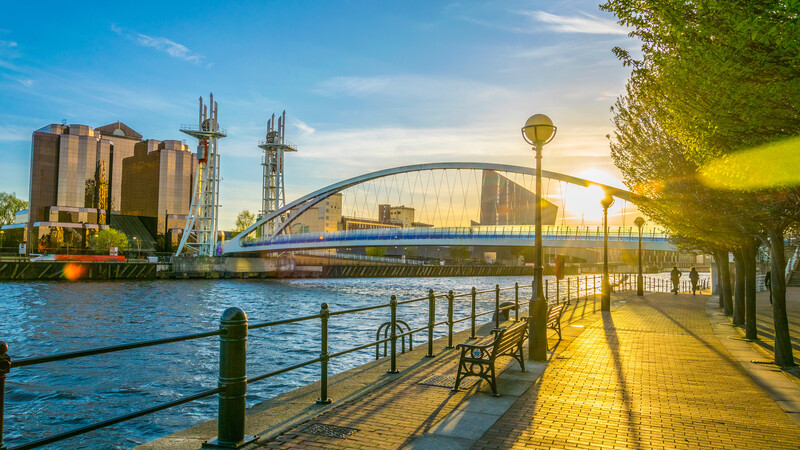Olympic Games 2024: What can host Paris learn from London 2012?

As Paris gears up to host this year’s Olympic and Paralympic Games, the 2012 Stratford East Bank legacy project has some critical lessons learned to share. So how can the City of Lights capitalise on the opportunities of being a host city (and avoid white elephants)?
1. Project lockstep around a common vision
Legacy should be treated as a programme aligned around a central vision. With so many projects across the Olympic Park, the London Legacy Development Corporation (LLDC) has been acting as a de facto programme management office (PMO) since just before the Games in 2012.
LLDC has used its powers to ensure that developers and new tenants contribute to the area in line with the legacy masterplan.
“Our job is to make connections between these institutions, so they are talking to people here and each other,” says Rosanna Lawes, LLDC’s Executive Director of Development. “In project management terms, it’s easy to focus a lot on risk. We try to think through the opportunities in a more strategic way.”
East Bank – a collaboration between arts institutions, universities and the people of the four east London boroughs that the Park straddles — hopes to make a major contribution to culture for the whole city. But even with a central PMO there are challenges.
Dance theatre Sadler’s Wells, for example, is opening a new venue in the Park in 2024.
“It’s been a big learning curve in terms of project management,” says Charlotte Meyer, its Head of Projects and Governance. “Finding the confidence to represent your side of the table and find the compromises needed without undermining your own project at the end — that’s been hard.”
It’s one of the big lessons Lawes takes out of the development: “Investing time up front in those relationships, building your goodwill, signing off and being clear about your vision and objectives are all crucial.”
2. Connect culture through collaboration
That commitment to build a programme around both infrastructure and culture is illustrated by the appointment of Tamsin Ace as Director of East Bank Partnerships (EBP) in September. She is the former Head of Cultural Programming at key Park tenant London College of Fashion (LCF).
“It’s about showing what collaboration can look like,” she explains. “At LCF, I did a roadshow across the different campuses internally to get buy-in for the new cultural programme at East Bank. At EBP, it’s about making sure we can build, externally, on each other’s strengths and that we don’t double up resources.”
A good example is the way cultural events will feed into each other: the V&A will launch its East Bank site with an exhibition on black British music, a perfect opportunity for LCF and Sadler’s to align their own programming.
It extends outwards, too. EBP’s New Talent for Future Leaders programme offers paid internships for people from the four boroughs, helping create firmer links between the new tenants and the community.
3. Hold partners to account
The ‘raw material’ of the Park did pose challenges. Infrastructure designed for the Games — such as a wide ring-road around the site — hasn’t always been helpful for cohesive mixed-use developments. Solving that issue has been central to the planning of sustainable projects.
“[Planning] strategies set out how the partners will deliver on their commitments to community use, educational outreach and local employment,” says Kate Higham, Programme Director at Turner & Townsend. Higham was formerly UCL East Programme Manager at University College London. UCL East is a campus of the university that opened in the Park in 2023.
“These, and the governance structures of LLDC, hold partners to account — particularly how local benefits underpin operations for the long term. There has to be a clear plan for translating the programme work into business-as-usual, which was a key part of how the first phase of the UCL East programme was managed and successfully closed down.”
That has meant the major projects function at UCL, for example, has included all the academic departments to ensure risks, dependencies and operational sustainability are coordinated.
4. Place the legacy into a community context
It’s not hard to find critics of the legacy programme. In the first years after the bid, the Games’ organisers worked hard to sell its social inclusivity. Chair of the London 2012 Organising Committee, Sebastian Coe, for example, promised up to 40,000 new homes, with much of the fresh stock being affordable housing.
In 2022, only around 39% of the 1,200 new homes built fell into that category; 65,000 people are on housing waiting lists in the four boroughs. Critics argue property developers have gentrified the area. Westfield shopping centre and West Ham Football Club bring in footfall, but do little for local communities, they claim.
But it doesn’t have to be either/or, say programme leaders.
“Lots of organisations and people come into the Park from outside, and we want to make sure that the benefits of that are enjoyed by local people,” says Lawes. “We want this to be economically successful, and that has to mean opportunities for local people.”
She reels off a list of initiatives to support smaller businesses, with low-cost workspaces and “pathways into the emerging cultural sector” on the Park, supported by outreach projects from East Bank partners.
There’s a construction skills academy supported by Transport for London, for example. Residential developments at sites such as Hackney Bridge could help address criticisms about affordable housing. Sports facilities are widely used by local clubs and schools.
Lawes is keen to point out that the programme is a work in progress.
“We’ve completed much of the bricks-and-mortar bit, and we’re still doing that,” she says. “We are already seeing the benefits, but you’ll really see the socio-economic impact building in the next decade, the next 20 years. It’s that time horizon that you need to have.”
What’s Lawes’ big lesson learned from more than 20 years working in this part of London? “If you believe in your vision at the outset, you’ll get there provided you’ve got little stepping stones along the way. Hold your nerve.”


0 comments
Log in to post a comment, or create an account if you don't have one already.